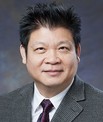Topic: Modeling Glass Facades under a Fire
Abstract:
Glass facade systems have gained much popularity in the construction industry in recent years due to their architectural features and superior acoustic and thermal insulation properties. An important development in facade design is the double-skin facade (DSF), widely used in shopping malls and office buildings to reduce acoustic impact and heat load while allowing natural daylight. However, the DSF system has the potential to become a death trap because smoke and other toxic gases can become confined within the cavity. Moreover, due to its brittle nature, glass expands and breaks easily at elevated temperatures, and this can escalate the severity of a fire outbreak. This is of particular concern in DSFs because a loss of facade integrity may provide a channel for fire spreading to other levels and adjacent buildings. To prevent a fire from spreading, DSFs must be carefully designed with the aims of enhance its thermal performance and minimizing the occurrence of fire jumping up or down levels. Therefore, it is essential to understand thermo-mechanical mechanisms of the DSF under a fire. The present study develops a novel computational framework based on smoothed particle hydrodynamics (SPH) technique to simulate the thermal degradation of DSFs under the fire conditions. Numerical simulations for the same DSF configuration but equipped with venetian blinds are conducted to examine the influence of the blinds on the fire performance of glass DSFs. It is demonstrated that the “blind tilt angle” for venetian blinds is the key parameter that influences the progression of temperature changes in the glass panes of a DSF. The outputs of this study help to improve the fire protection design of DSF systems, address various safety and reliability concerns, and provide useful theoretical and practical references.
Biography:
 Professor K.M. Liew is Dean of Graduate Studies, Founding Director of Center for Nature-Inspired Engineering, Yeung Kin Man Chair Professor of Sustainable Engineering in City University of Hong Kong. He is an elected member of Academia Europaea, and fellow of Hong Kong Academy of Engineering Sciences. He was a tenured full professor at Nanyang Technological University (Singapore), and the Founding Director of Nanyang Center for Supercomputing and Visualization (Singapore). Over his academic career, he has authored/co-authored over 850 journal articles. Professor Liew is listed by (1) the Institute for Scientific Information (ISI) as a Highly Cited Researcher in Engineering (since 2001), (2) the Clarivate Analytics as the 2018 Highly Cited Researcher in Engineering, and 2019, 2020 and 2021 Highly Cited Researcher in Cross-Field, and (3) Stanford University list as Top 2% most Highly Cited Scientists. His publications have been cited over 49,000 times and achieved an h-index of 108.
Professor K.M. Liew is Dean of Graduate Studies, Founding Director of Center for Nature-Inspired Engineering, Yeung Kin Man Chair Professor of Sustainable Engineering in City University of Hong Kong. He is an elected member of Academia Europaea, and fellow of Hong Kong Academy of Engineering Sciences. He was a tenured full professor at Nanyang Technological University (Singapore), and the Founding Director of Nanyang Center for Supercomputing and Visualization (Singapore). Over his academic career, he has authored/co-authored over 850 journal articles. Professor Liew is listed by (1) the Institute for Scientific Information (ISI) as a Highly Cited Researcher in Engineering (since 2001), (2) the Clarivate Analytics as the 2018 Highly Cited Researcher in Engineering, and 2019, 2020 and 2021 Highly Cited Researcher in Cross-Field, and (3) Stanford University list as Top 2% most Highly Cited Scientists. His publications have been cited over 49,000 times and achieved an h-index of 108.
Time: 2022/12/07 09:00-12:00 (GMT+08:00)
Tencent Meeting ID: 193-410-184
Host: Prof. Shengxi ZHOU
